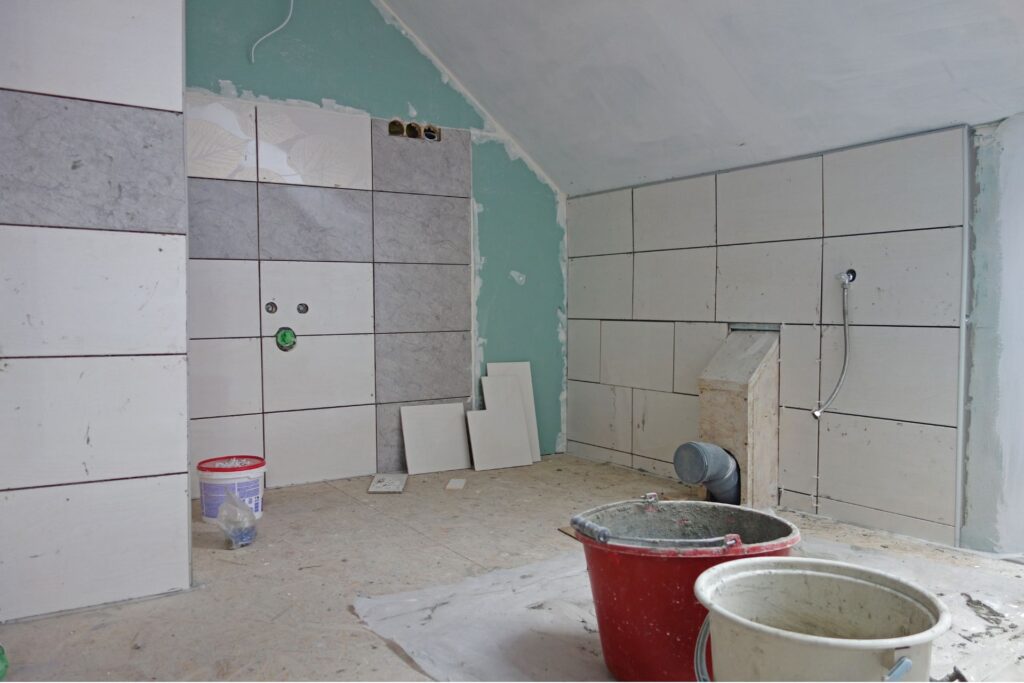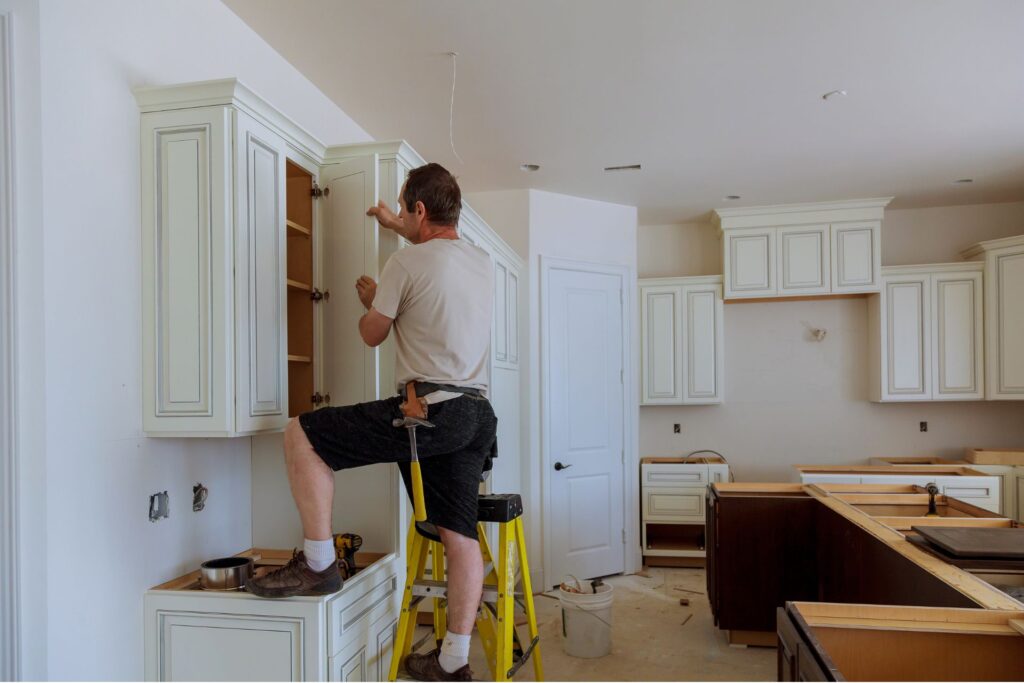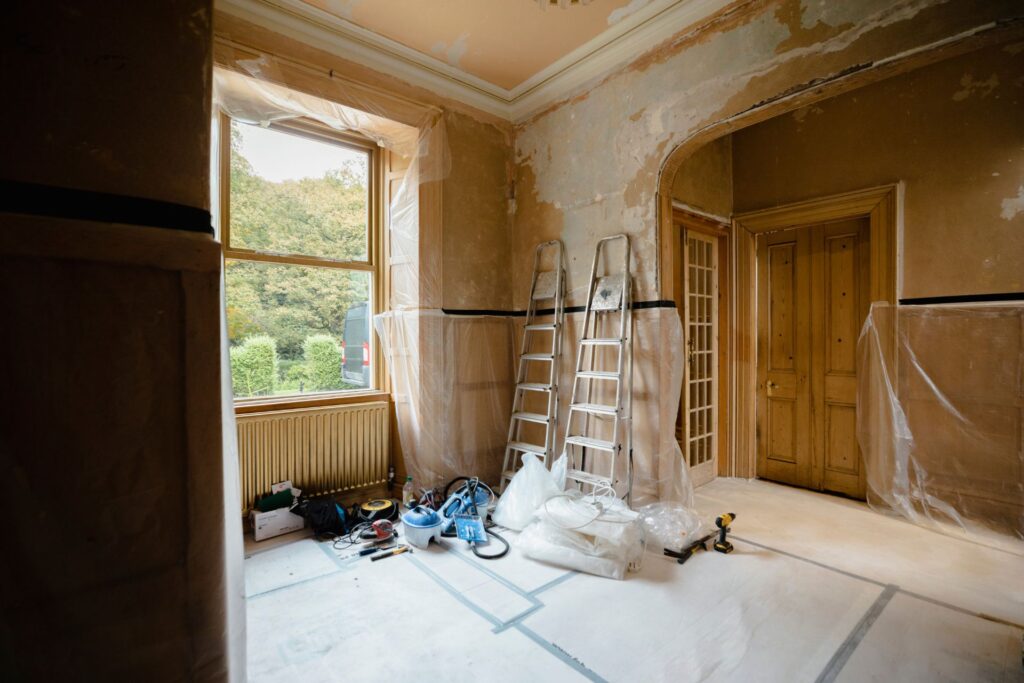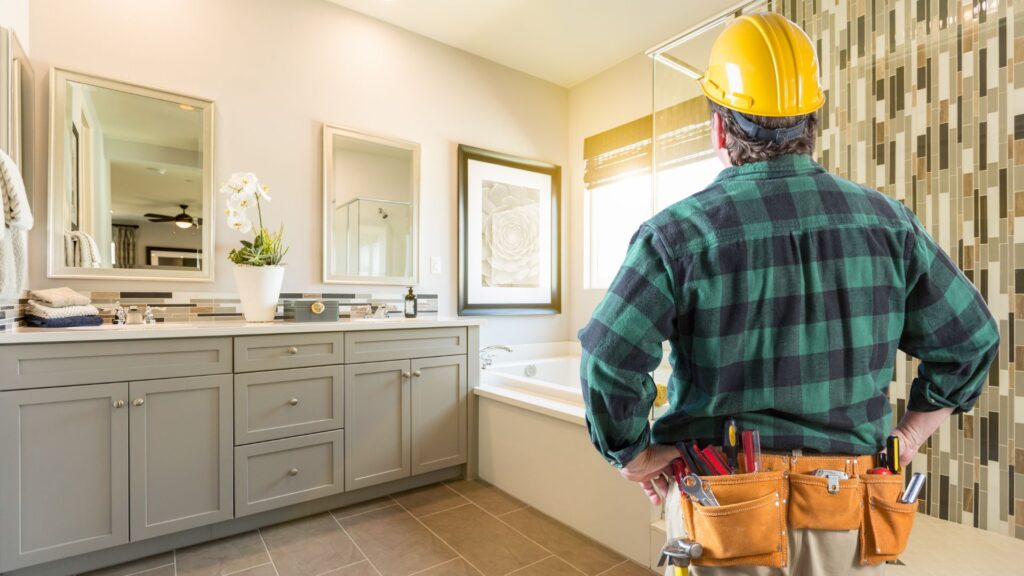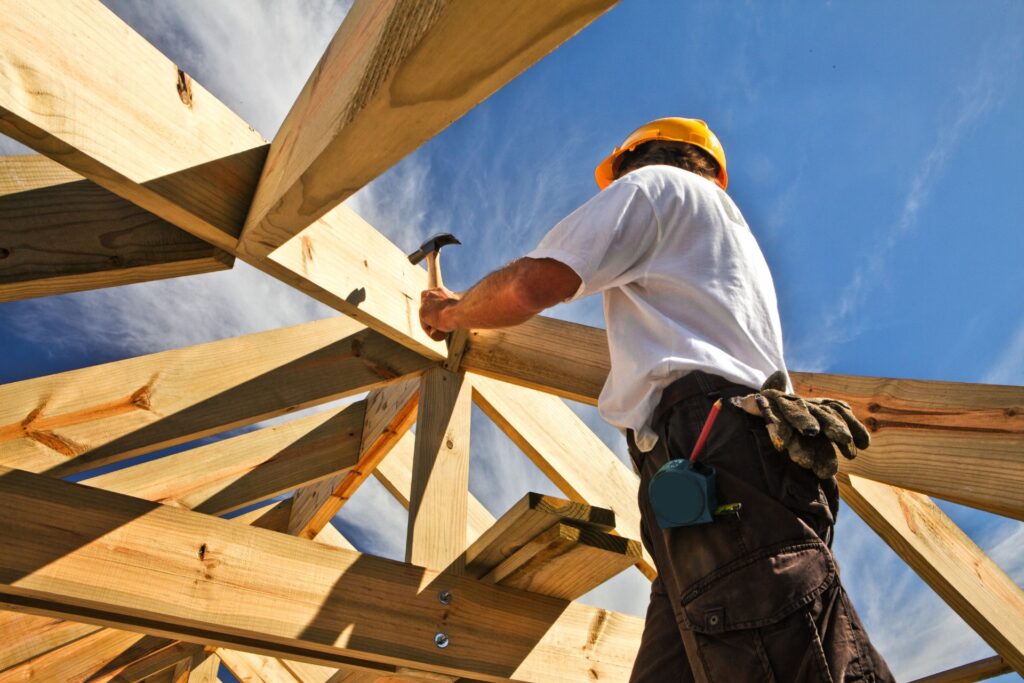Welcome to our comprehensive guide on understanding the hourly rate for self-employed builders. Whether you’re planning a home renovation, a new build, or just a small repair project, knowing what to expect in terms of labor costs is essential. In this post, we’ll explore the typical rates for self-employed builders, the factors that influence their pricing, and how you can ensure you’re getting a fair deal without compromising on quality. Whether you’re hiring a builder for the first time or you’re familiar with the process, this guide will help you navigate the details and make informed decisions that suit both your project and budget.
The average hourly rate for a self-employed builder typically ranges from $25 to $70, depending on factors such as location, experience, and project complexity. Builders in urban areas or with specialized skills may charge higher rates, while those in rural areas or with less experience may charge less. Always request a detailed quote and clarify any additional costs, such as materials or travel expenses, to ensure a fair and transparent price for your project.
Table of Contents
What Is The Average Hourly Rate For A Self-Employed Builder
If you’re considering hiring a self-employed builder or becoming one yourself, it’s essential to understand the average hourly rate and what factors can influence those rates. The cost of hiring a self-employed builder can vary widely based on several factors, including location, type of work, and experience level.
General Hourly Rate Range for Self-Employed Builders
The average builder hourly rate typically falls within a broad range of $25 to $70 per hour. In some cases, especially for specialized work or in high-demand areas, this rate can exceed $100 per hour. Here’s a quick breakdown of the factors that can affect how much a self-employed builder charges.
- Location: Rates differ significantly depending on where you are. Builders working in urban areas with a higher cost of living tend to charge more than those in rural or less populated regions. For example, a builder in New York City or London may charge closer to the upper end of the scale, while someone in a rural area could be on the lower end.
- Type of Work: The complexity of the job also plays a significant role in determining rates. General construction work might fall closer to $25–$40 per hour, while more specialized tasks like roofing, electrical work, or plumbing could command rates in the $50–$70 range.
- Experience and Skill: Builders with a lot of experience or those with highly specialized skills can demand higher wages. For example, a self-employed builder with 20 years of experience may charge significantly more than a newly self-employed builder with less than five years in the trade.
Regional Variations in Builder Rates
The builder rates by region also show considerable variation depending on the country or region. Here’s an overview based on common regions.
- United States: In the U.S., self-employed builders can expect to earn between $35 and $70 per hour, depending on the region. Urban centers like New York, Los Angeles, and Chicago generally have higher rates due to demand and living costs. In rural areas or smaller towns, the rates may be lower, closer to $25 to $40 per hour.
- United Kingdom: In the UK, the average builder hourly rate typically ranges from £15 to £40. Builders in London or other major cities can charge significantly more, often upwards of £50 per hour, whereas builders in more rural parts of the country might charge lower rates.
- Australia: In Australia, builder rates can range from AUD 40 to AUD 100 per hour. In urban areas like Sydney and Melbourne, it’s common to see builders charging towards the higher end of the spectrum, while builders in more regional areas may charge less.
Factors Affecting Hourly Wages for Builders
Several key factors affect the self-employed builder hourly wages, including:
- Demand: In regions with a high demand for construction, renovation, or new builds, self-employed builders can charge more due to limited availability and greater competition for their services.
- Certifications and Specializations: Builders who hold additional certifications or specialize in areas such as sustainable building practices or historical restoration may charge a premium due to their unique skill set.
- Job Scope and Project Size: Larger, more complex projects might involve a higher hourly rate, especially if they require detailed planning and advanced skills. Smaller, straightforward jobs may involve lower hourly rates.
When trying to determine the average hourly rate for a self-employed builder, it’s essential to consider geographical factors, the type of work, and the builder’s level of expertise. Depending on where you’re located, rates can vary from $25 to $70 per hour, and may even reach higher levels in large metropolitan areas or for specialized work. Understanding these variables can help ensure you set the right budget for your building project or charge the appropriate rate as a self-employed builder.

Factors That Affect A Self-Employed Builder’s Hourly Rate
When determining the hourly rates of a self-employed builder, several key factors come into play. These include the builder’s experience, location, the complexity of the project, and business overhead costs. Understanding these variables can help clients and builders alike navigate pricing discussions more effectively. Let’s dive deeper into each of these factors and how they affect a builder’s hourly rate.
Experience and Skill Level
The experience a builder has directly impacts their hourly rate. Generally, the more years a builder has under their belt, the higher their rate. This is because experience often correlates with a higher level of skill, efficiency, and an ability to manage complex projects. Builders with a proven track record of high-quality work and satisfied clients are likely to charge premium rates, as they bring valuable expertise to the table.
For example, a novice builder just starting out might charge a lower rate to attract clients and build a portfolio. However, an experienced builder with decades of hands-on expertise and specialized certifications whether in carpentry, masonry, or general construction will typically command a higher price. Specializations also play a critical role in pricing. Builders with niche skills, such as working with eco-friendly materials or historic restorations, are likely to charge more than general contractors due to the specialized knowledge required for these types of projects.
Location
Location is another significant factor in determining a self-employed builder’s hourly rate. Builders working in regions with a higher cost of living, such as large cities or affluent neighborhoods, often charge more than those in rural or lower-cost areas. This is because not only is the demand for builders higher in urban areas, but builders also face higher living and operational expenses.
For example, a builder operating in New York City or San Francisco might charge substantially more per hour than one working in a small town in the Midwest. Builders in regions where demand for construction services is high, such as in areas with booming real estate markets, may also have more flexibility to increase their rates. Conversely, in places where the demand for construction is lower, builders may need to be more competitive with their pricing to attract clients.
Scope of Work
The complexity and scope of a project also significantly influence a builder’s hourly rate. Simple tasks, such as small repairs or basic installations, tend to be more affordable. However, more complex projects like custom builds, large-scale renovations, or historical restorations often command a much higher rate. This is due to the time, skill, and meticulous attention to detail required for these projects.
For instance, a builder working on a new custom home construction will likely charge more than someone handling routine maintenance or smaller renovations. Custom projects involve more intricate planning, problem-solving, and often the coordination of various specialized trades. Builders must account for these factors when setting their rates, as they require more expertise and often longer completion times.
Overhead Costs
Lastly, self-employed builders must consider their overhead costs when determining their hourly rates. These costs include business expenses such as tools, equipment, insurance, transportation, marketing, and taxes. Builders must ensure that their rates cover not only their labor but also these essential business costs to maintain profitability.
For example, a builder who regularly invests in high-quality tools or who travels long distances to job sites may need to charge higher rates to cover these expenses. Additionally, builders who carry extensive liability or worker’s compensation insurance may pass on some of these costs to their clients through higher hourly rates. Business taxes and any required licenses or permits also affect a builder’s overall pricing strategy.
A self-employed builder’s hourly rate is influenced by several important factors, including their experience, location, the scope of the project, and overhead costs. By understanding these variables, both builders and clients can navigate pricing more effectively, ensuring fair compensation for quality work. Whether you’re a homeowner looking for a reliable builder or a contractor setting your rates, keeping these factors in mind can lead to more informed decisions.

How To Negotiate Rates With A Self-Employed Builder
When it comes to hiring a self-employed builder, negotiating the rates can be one of the trickiest parts of the process. However, with the right approach, you can ensure you get a fair deal that fits your budget without compromising on quality. Below are key strategies to help you successfully negotiate rates with a builder while maintaining a positive and professional relationship.
Do Your Research
Before initiating any discussions about rates, it’s crucial to do your homework. Research the average costs for similar building projects in your area. This will give you a solid understanding of what to expect, which can serve as a baseline when you begin negotiating builder rates. Knowing the typical price range for labor, materials, and other associated expenses will help you identify fair quotes and ensure you’re not overpaying for the work.
Take into account factors like the builder’s experience, the scope of your project, and regional price variations. Online tools, forums, and even speaking with other homeowners who have completed similar projects can provide valuable insights. The more informed you are, the stronger your negotiating position will be.
Request Detailed Quotes
Once you’ve gathered your research, the next step is to ask for detailed quotes from potential builders. It’s important to request itemized quotes that break down the costs into specific categories such as labor, materials, and any additional expenses. This transparency not only helps you understand where your money is going but also opens up opportunities for negotiation.
For instance, you may notice that the cost of materials seems higher than expected, which could lead to a discussion about alternatives or sourcing materials yourself. Alternatively, if labor costs seem excessive, you can ask the builder if there are ways to streamline the project without sacrificing quality. Requesting builder quotes in a detailed format makes it easier to identify areas where savings might be possible.
Negotiate Payment Terms
When negotiating builder payment terms, many people focus solely on the total cost of the project, but it’s just as important to discuss how and when payments will be made. Some builders charge by the hour, while others may prefer fixed-price contracts or milestone-based payments. Fixed-price agreements can be particularly useful in avoiding unexpected cost increases, while milestone payments ensure that funds are released only when specific stages of the project are completed.
For larger projects, milestone payments can provide a balanced approach, giving both parties peace of mind. You can discuss spreading the payments across significant milestones, such as when the foundation is complete, when the roof is installed, or after final inspections. This method not only manages cash flow but also incentivizes the builder to stay on track with deadlines.
Be Transparent About Your Budget
One of the best ways to negotiate rates with a builder is by being upfront about your budget from the beginning. When a builder understands your financial limits, they are more likely to propose solutions that fit within your price range. This could involve suggesting less expensive materials, offering discounts for bulk purchases, or rethinking the scope of the project to align with your budget.
Transparency helps avoid miscommunication and unrealistic expectations. However, it’s essential to communicate that you’re looking for a fair rate, not just the cheapest one. A good builder will appreciate your openness and may even offer creative solutions to maximize value within your budget.
Key Takeaways
- Research is critical: Before negotiating, know the average builder rates in your area.
- Request detailed, itemized quotes: This gives clarity and room to discuss costs in specific areas.
- Negotiate payment terms: Fixed-price contracts or milestone-based payments can protect your budget.
- Be transparent about your budget: Openness can lead to better, customized solutions that fit your financial capacity.

Benefits Of Hiring A Self-Employed Builder
When considering a construction or renovation project, one of the key decisions you’ll face is whether to hire a large construction company or a self-employed builder. While both options have their merits, many people find that hiring a self-employed builder offers unique advantages. Below, we’ll explore the benefits of hiring a self-employed builder and why it could be the right choice for your project.
Flexibility in Scheduling
One of the most significant benefits of hiring a self-employed builder is the flexibility they offer in terms of scheduling. Unlike larger construction companies, which often have multiple projects running at once, a self-employed builder typically takes on fewer projects at a time. This means they can adjust timelines to better fit your needs. If you need to make changes to the schedule due to unexpected events or delays in material delivery, a self-employed builder is usually more accommodating. This level of flexibility can be a game-changer for homeowners who want to avoid the rigid timelines often imposed by bigger firms.
Personalized Service
When you hire a self-employed builder, you’re working directly with the person who will be handling the work. This direct communication ensures that your vision is clearly understood and that any adjustments can be made on the fly. In contrast, larger companies often have layers of management, which can lead to miscommunication or delays in decision-making. A self-employed builder is able to provide more personalized service because they are involved in every aspect of the project. From the initial consultation to the final touches, you’re dealing with one person who knows the project inside and out, leading to a smoother and more efficient process.
Cost Efficiency
Another major advantage of hiring a self-employed builder is the potential for cost savings. Large construction companies typically have higher overhead costs, such as office space, administrative staff, and marketing expenses. These additional costs are often passed on to the client in the form of higher project fees. On the other hand, self-employed builders run leaner operations, meaning they can often offer more competitive rates. Additionally, because you’re working directly with the builder, there’s a greater opportunity to negotiate costs and explore ways to save money without sacrificing quality.
If you’re looking to complete a project on a budget without compromising on craftsmanship, a self-employed builder can be a more affordable and effective solution.
Hiring a self-employed builder offers a unique combination of flexibility, personalized service, and cost efficiency that can be hard to find with larger construction companies. For homeowners looking to complete a project with a builder who is committed, engaged, and adaptable, the self-employed route may be the perfect fit. By understanding the benefits of hiring a self-employed builder, you can make an informed decision that ensures your project is completed to your satisfaction, on time, and within budget.

Drawbacks Of Hiring A Self-Employed Builder
When planning a home renovation or building project, many homeowners consider hiring a self-employed builder due to potential cost savings and more personalized service. However, before making that decision, it’s crucial to understand the possible drawbacks of working with a solo contractor. Below, we break down some of the key risks and disadvantages you might face when hiring a self-employed builder, and why vetting is essential for a successful project.
Potential for Unavailability
One of the major drawbacks of self-employed builders is their potential unavailability for larger or multiple projects. Because they are working solo or with minimal help, their time and resources can be stretched thin. If your project requires constant attention or quick turnarounds, a self-employed builder may not be able to accommodate this. For instance, if they are juggling several jobs at once or unexpectedly fall ill, your project might get delayed. Unlike larger construction firms that have teams in place to step in when needed, solo contractors often don’t have the same flexibility, leaving you waiting when unforeseen issues arise.
In essence, while self-employed builders can offer dedicated attention to smaller projects, their ability to handle larger workloads or emergencies may be limited. If you’re looking for someone who can guarantee availability throughout your project timeline, this can be a significant concern.
Reliability Concerns
Another challenge in hiring a self-employed builder is ensuring reliability. With larger firms, there is typically a trail of past projects, reviews, and company reputation to rely on. However, with solo contractors, especially those just starting out, it can be harder to find detailed reviews or past customer recommendations. While a self-employed builder may have glowing references, these might be fewer in number, making it more difficult to fully assess their work quality and reliability.
Additionally, since solo builders are often working alone, they might not have anyone to check their work or provide accountability. This lack of oversight can sometimes lead to errors or shortcuts, particularly if the builder is inexperienced. It’s essential to conduct thorough vetting, request a portfolio of completed projects, and seek multiple recommendations before committing to a self-employed contractor. Otherwise, you may be exposing yourself to the risks associated with subpar workmanship.
Limited Scope of Services
A significant disadvantage of hiring a self-employed builder is their limited scope of services. Large construction companies typically have teams that cover a wide range of specialties—from electrical work to carpentry and plumbing. On the other hand, a solo builder may lack the ability to provide all the necessary services for more complex or specialized projects.
For example, if your project involves intricate design elements, highly specialized materials, or large-scale construction, a self-employed builder may need to outsource certain aspects of the work to subcontractors. This can complicate the project, introduce new costs, or lead to delays if the subcontractors aren’t immediately available. It also places the burden on you, as the homeowner, to manage multiple tradespeople and ensure their schedules align with the overall project timeline.
While self-employed builders often excel at smaller or more straightforward projects, they may not have the bandwidth or expertise to take on highly specialized tasks. This could result in you needing to hire additional help or settling for less-than-optimal results.
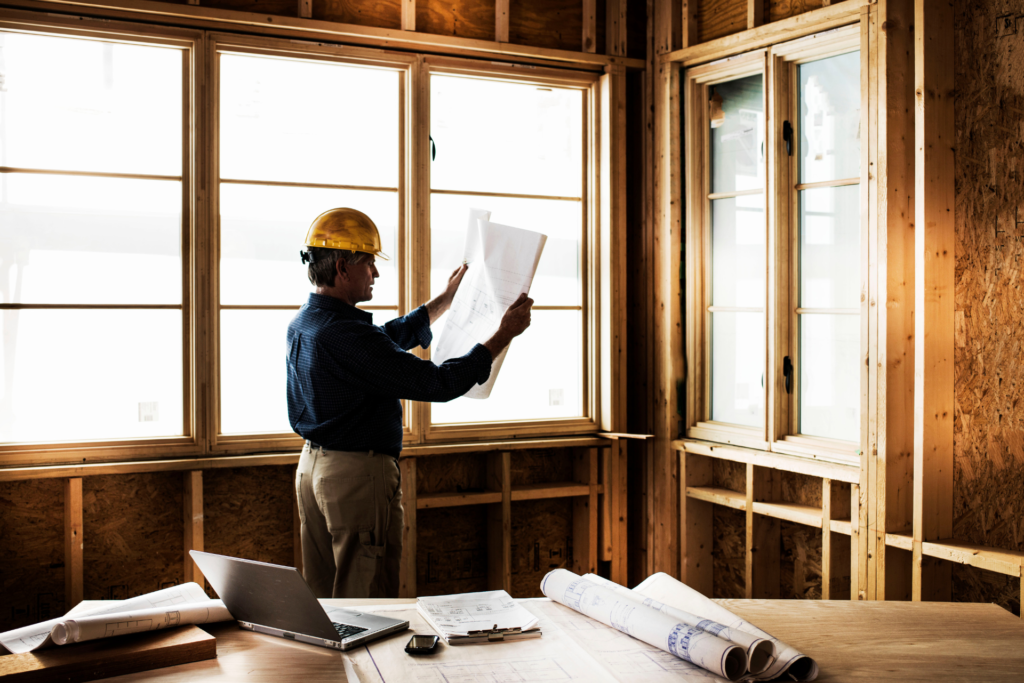
How To Find A Reliable Self-Employed Builder
When considering the drawbacks of hiring a self-employed builder, it’s important to weigh the potential risks and limitations against the specific needs of your project. While self-employed builders can provide a more personal, often cost-effective service, there are significant risks concerning availability, reliability, and the scope of services they can provide. For smaller, straightforward projects, a self-employed builder might be a great fit. However, for larger or more complex renovations, you may want to consider hiring a larger construction firm to ensure timely completion and access to a full range of services.
Finding a reliable self-employed builder can be a challenge, especially when you’re looking for quality work at a fair price. Whether you’re planning a home renovation, an extension, or even building a new structure from the ground up, it’s crucial to hire a builder you can trust. In this guide, we’ll explore practical steps to help you find a dependable self-employed builder, ensuring your project goes smoothly from start to finish.
Use Trusted Online Platforms and Directories
The internet is a powerful tool for finding reliable builders. Several well-known online platforms and directories can connect you with independent builders who have been vetted and reviewed by past clients. Additionally, many local directories cater to specific areas, making it easier to find builders near you. Local chambers of commerce or community boards often list trusted builders who are familiar with local regulations and building codes. When using online platforms, it’s a good idea to check if the builder has a strong, consistent presence across multiple platforms. This can indicate a reliable and professional reputation.
Ask for Referrals from People You Trust
Word of mouth remains one of the most reliable ways to find a trustworthy self-employed builder. Ask around in your network—friends, family, or neighbors especially those who have recently completed building projects. They can provide honest feedback on their experience, the quality of work, and whether the builder stayed on budget and schedule.
Personal referrals are invaluable because they come from people who have no vested interest in the builder’s reputation other than sharing their experiences. They may also give you insights into the builder’s working style, professionalism, and communication habits, which online reviews may not always cover.
Check Qualifications and Insurance
Before you hire a self-employed builder, make sure they are properly qualified and insured. Licensing requirements for builders can vary depending on your location, but it’s important to ensure your builder meets all local and national standards. Always verify their credentials, including any trade certifications or affiliations with recognized industry bodies. These qualifications can be a good indicator of their expertise and commitment to quality.
Additionally, confirm that the builder carries the proper insurance. They should have public liability insurance, which covers any damage or injury caused during the project, and builders’ risk insurance, which covers the property while construction is underway. Hiring a builder without insurance can expose you to significant risks, including liability for accidents on your property.
Read Reviews and Ask for Testimonials
Before finalizing your decision, it’s important to do a bit of homework on your prospective builder. Start by reading online reviews on platforms like Google, Yelp, or Trustpilot. These reviews offer insights into past clients’ experiences and can alert you to any recurring issues, such as delays, cost overruns, or poor communication.
Additionally, don’t hesitate to ask the builder directly for testimonials or references. A reputable builder will be more than willing to provide this information. Speaking with previous clients can give you a clearer understanding of the builder’s work quality, reliability, and customer service.
When you set out to find a reliable self-employed builder, it’s important to take your time and follow a careful process. By using trusted online platforms, seeking personal referrals, verifying qualifications and insurance, and reading reviews, you can confidently choose a builder who will deliver quality work on time and within budget.
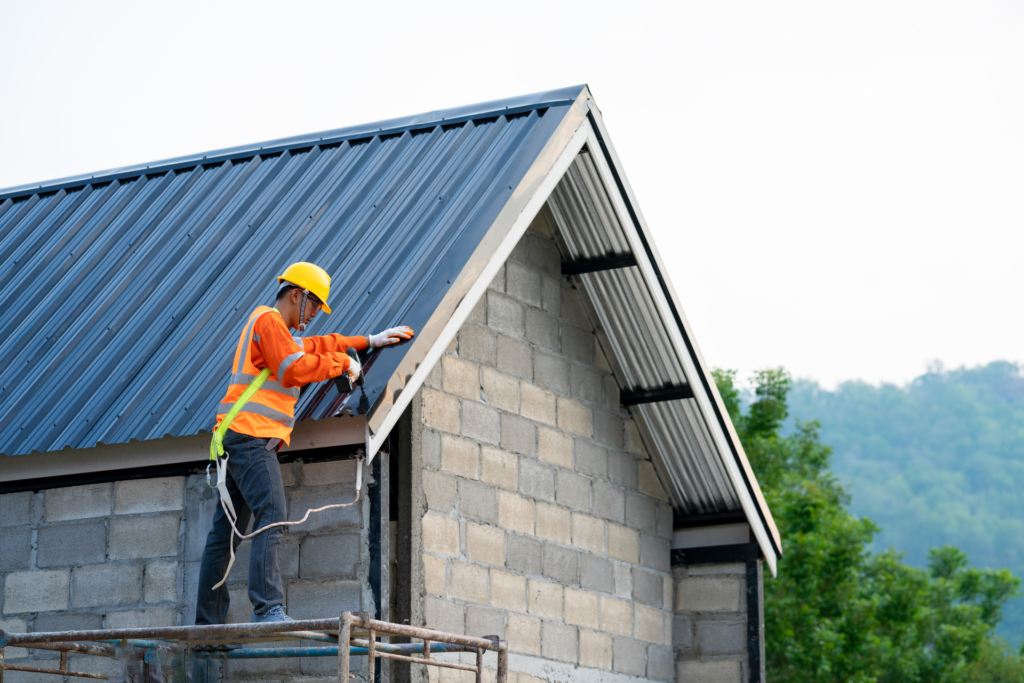
Additional Costs To Consider Beyond Hourly Rates
When planning a construction or renovation project, it’s important to understand that the hourly rate you’re quoted is only part of the equation. There are several other costs that may arise during the project, and being aware of these can help you budget more effectively. Here’s a breakdown of additional expenses you should anticipate:
Materials and Supplies
One of the biggest contributors to extra costs comes from materials and supplies. While the builder’s hourly rate covers their time and labor, you’ll typically be billed separately for all the materials required for the job. Whether it’s lumber, concrete, tiles, or fixtures, these items are often chosen in consultation with the client but must be factored into the overall cost. The price of materials can fluctuate due to market conditions, and high-quality or custom options will naturally raise the total cost of the project. It’s a good idea to ask your contractor for an estimate or allowance for materials upfront to avoid any surprises later on.
Permits and Licenses
For many types of construction projects, especially those involving structural changes, electrical work, or plumbing, permits are required. These permits ensure that the work complies with local building codes and regulations. While some contractors will take care of acquiring the necessary permits, it’s often the client’s responsibility to cover the cost of these. Depending on the complexity of your project and your local municipality, permit fees can range from a few hundred to several thousand dollars. Be sure to discuss with your contractor whether permits are needed and factor this into your budget.
Travel Costs
If your project is located outside of your contractor’s usual service area, you may be charged for travel costs. This can include expenses like fuel, tolls, or even accommodation if the job requires extended periods of work far from their base of operations. These charges are often calculated as a flat fee or added on top of the hourly rate, depending on the distance and duration of the project. If your property is in a remote location, it’s a good idea to clarify any potential travel costs before signing a contract.
Unexpected Issues
Construction projects don’t always go exactly as planned. Unforeseen issues can arise during the course of the work that lead to additional costs. For instance, your contractor may uncover hidden structural damage, electrical issues, or plumbing problems that weren’t visible during the initial inspection. Addressing these problems is often necessary to ensure the safety and integrity of the work, but it will likely increase the cost of the project. While no one can predict every obstacle, setting aside a contingency fund—typically around 10-15% of the total project cost can help cover these unexpected expenses.

Hourly Rates Vs. Fixed-Price Contracts
When starting a construction or renovation project, one of the most crucial decisions is how to structure the contract with your builder. Should you opt for hourly rates or a fixed-price contract? Both approaches have their benefits and drawbacks, and choosing the right one can make a significant impact on your project’s budget, timeline, and overall experience. Let’s break down the pros and cons of hourly rates vs. fixed-price contracts, so you can decide which option best suits your project.
Pros of Hourly Rates
- Flexibility for Smaller, Less Defined Projects: Hourly rates are a great option when the scope of work isn’t fully defined or when a project might evolve as work progresses. If you anticipate needing changes or adjustments along the way, paying by the hour gives you the flexibility to do so without renegotiating the contract each time. This is particularly useful for smaller projects, renovations, or when you’re unsure of the full scope at the outset.
- Transparent Accounting for Actual Time Worked: With an hourly rate, you’re paying for the exact time your builder works, which makes costs clear and traceable. This can build trust, as you only pay for the hours logged, and there’s a detailed record of time spent on each task. For clients who prefer transparency and like to see a breakdown of costs, hourly rates can offer peace of mind.
Cons of Hourly Rates
- Uncertainty in Total Project Costs: The biggest downside of hourly contracts is that they can lead to unpredictable costs. If the project runs into delays or unforeseen complications, the hours can quickly add up, increasing the overall budget beyond what was initially expected. This is particularly problematic if you’re working with a limited budget and need to keep costs under control.
- Potential for Timeline Extensions: When a builder is paid by the hour, there’s a possibility that the project timeline may stretch longer than anticipated, especially if there are unforeseen issues or changes. While most builders are ethical and aim to finish on time, the nature of hourly contracts means there’s less pressure to adhere to a strict deadline.
Pros of Fixed-Price Contracts
- Clear Upfront Cost: Fixed-price contracts offer a solid advantage: you know exactly how much your project will cost from the start. This is ideal for larger projects with a clearly defined scope and no expected changes. Having an agreed-upon price helps with budgeting, as there are no surprises or extra costs along the way, assuming the project sticks to the original plan.
- Risk Mitigation for Clients: Since the price is fixed, any unexpected delays or issues that arise during construction are typically absorbed by the builder (unless otherwise specified in the contract). This shifts the risk from the client to the contractor, providing more financial security for you as the client.
Cons of Fixed-Price Contracts
- Potential for Inflated Pricing: To account for any potential setbacks, builders often include a buffer in their fixed-price quotes, which can lead to higher costs compared to an hourly rate. This extra padding ensures they won’t lose money if the project takes longer than expected or if unforeseen challenges arise. While this protects the builder, it could result in you paying more upfront than you might with an hourly arrangement, particularly if everything goes smoothly.
- Limited Flexibility for Changes: Fixed-price contracts are less flexible when it comes to making changes once the project has started. Any significant deviations from the original scope of work will usually require a contract amendment, which could add to both the cost and timeline. If you’re someone who likes to make adjustments as you go, this type of contract may not be the best fit.
When to Choose Hourly vs. Fixed-Price Contracts
Choosing between hourly rates and fixed-price contracts depends largely on the nature of your project and your preferences as a client. If your project is small, undefined, or likely to change along the way, an hourly rate provides the flexibility to adapt as needed. On the other hand, for large projects with a clear scope and where cost certainty is a priority, a fixed-price contract is often the better choice.
Ultimately, your decision will depend on factors like the project’s complexity, your budget constraints, and your comfort level with uncertainty or potential cost overruns. Always communicate openly with your builder to ensure that the contract you choose aligns with your goals and expectations.

FAQs: About Hourly Rate For Self Employed Builder
How does a self-employed builder calculate their hourly rate?
Self-employed builders calculate their hourly rate based on several factors, including their level of experience, the cost of tools and equipment, transportation, and insurance. They also consider the type of work involved (simple vs. complex projects) and the demand for builders in their local area.
Do hourly rates for self-employed builders include taxes?
No, hourly rates usually do not include taxes. Most self-employed builders will add taxes separately on invoices. It’s essential to clarify with the builder how taxes will be handled and whether they are included in the overall project cost or added as an additional line item.
Are weekend or after-hours rates for self-employed builders higher?
Yes, many self-employed builders charge higher rates for weekend or after-hours work due to the inconvenience and demand for non-standard working hours. Be sure to discuss any potential additional charges for off-hour work upfront before the project begins.
How do I avoid being overcharged by a self-employed builder?
To avoid being overcharged you should get multiple quotes from different builders for comparison, request a detailed breakdown of the work, including labor, materials, and any other potential costs, set clear expectations for the scope of the project in writing, and monitor progress and communicate regularly with the builder to ensure the project stays on track.
What’s the difference between a licensed builder and a self-employed builder?
A licensed builder has met specific regulatory requirements, such as passing exams and obtaining certifications from local or national authorities. A self-employed builder is someone who works independently and may or may not be licensed. Always verify a builder’s credentials and license to ensure they meet the necessary standards for your project.
Can I save money by hiring a self-employed builder instead of a large company?
Yes, hiring a self-employed builder can often save money compared to hiring a larger construction company. Since self-employed builders have lower overhead costs (e.g., fewer staff, smaller offices), they may offer more competitive rates. However, it’s important to balance the potential cost savings with the builder’s reliability and expertise.
How do I handle disputes over hourly rates or work quality with a self-employed builder?
If a dispute arises over hourly rates or work quality, it’s important to first have an open discussion with the builder and refer to the signed contract. Clearly state your concerns and ask for clarification on any confusing terms. If the issue persists, you can seek mediation services, or as a last resort, take legal action to resolve the dispute.
Should I tip a self-employed builder?
Tipping a self-employed builder is not common practice, but if you feel they’ve gone above and beyond or provided exceptional service, a tip is a nice gesture. In most cases, builders set their rates to reflect their services fairly, so tipping is not expected but is appreciated.
How do self-employed builders handle insurance and liability?
Self-employed builders should carry their own liability insurance to cover any potential damages or accidents that occur during the project. As a homeowner, it’s essential to ask for proof of insurance before hiring a builder to avoid being liable for any issues that may arise during the construction.
Can I negotiate with a self-employed builder to lower their hourly rate?
Yes, you can negotiate with a self-employed builder, but it’s important to approach the discussion respectfully. Many builders have set rates based on their expertise, but some may offer discounts for larger projects, repeat customers, or flexible timelines. It’s always a good idea to ask for a quote that fits your budget and see if there’s any room for adjustment.
Conclusion
Finding the right builder at the right rate is essential to ensuring your project not only stays within budget but also meets your expectations for quality and reliability. While cost is a significant factor, it’s crucial not to compromise on the expertise and craftsmanship a reputable self-employed builder can offer. Understanding a builder’s hourly rate is a practical step in managing expenses and helps avoid unexpected financial surprises down the line. By researching thoroughly and negotiating confidently, you’ll be in a strong position to hire a skilled professional who aligns with both your budget and your project’s needs. Take the time to gather quotes and compare rates in your local area, as this will give you a clearer picture of what’s reasonable and fair. If you’re ready to bring your vision to life, now is the perfect time to start your project by reaching out to self-employed builders near you for estimates and insights on your construction or renovation goals.
About the Author:
Mike Veail is a recognized digital marketing expert with over 6 years of experience in helping tradespeople and small businesses thrive online. A former quantity surveyor, Mike combines deep industry knowledge with hands-on expertise in SEO and Google Ads. His marketing strategies are tailored to the specific needs of the trades sector, helping businesses increase visibility and generate more leads through proven, ethical methods.
Mike has successfully partnered with numerous companies, establishing a track record of delivering measurable results. His work has been featured across various platforms that showcase his expertise in lead generation and online marketing for the trades sector.
Learn more about Mike's experience and services at https://theleadguy.online or follow him on social media:

